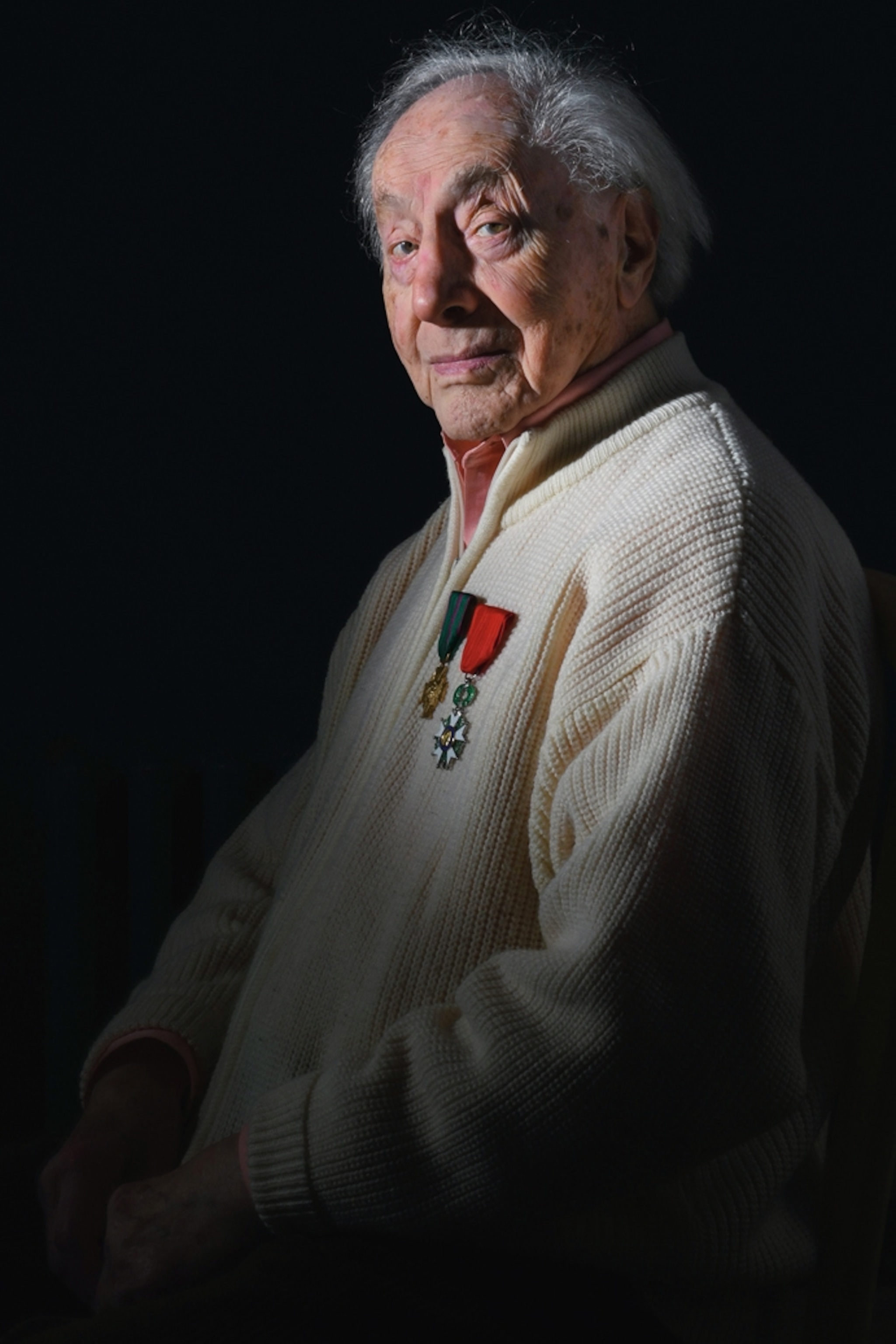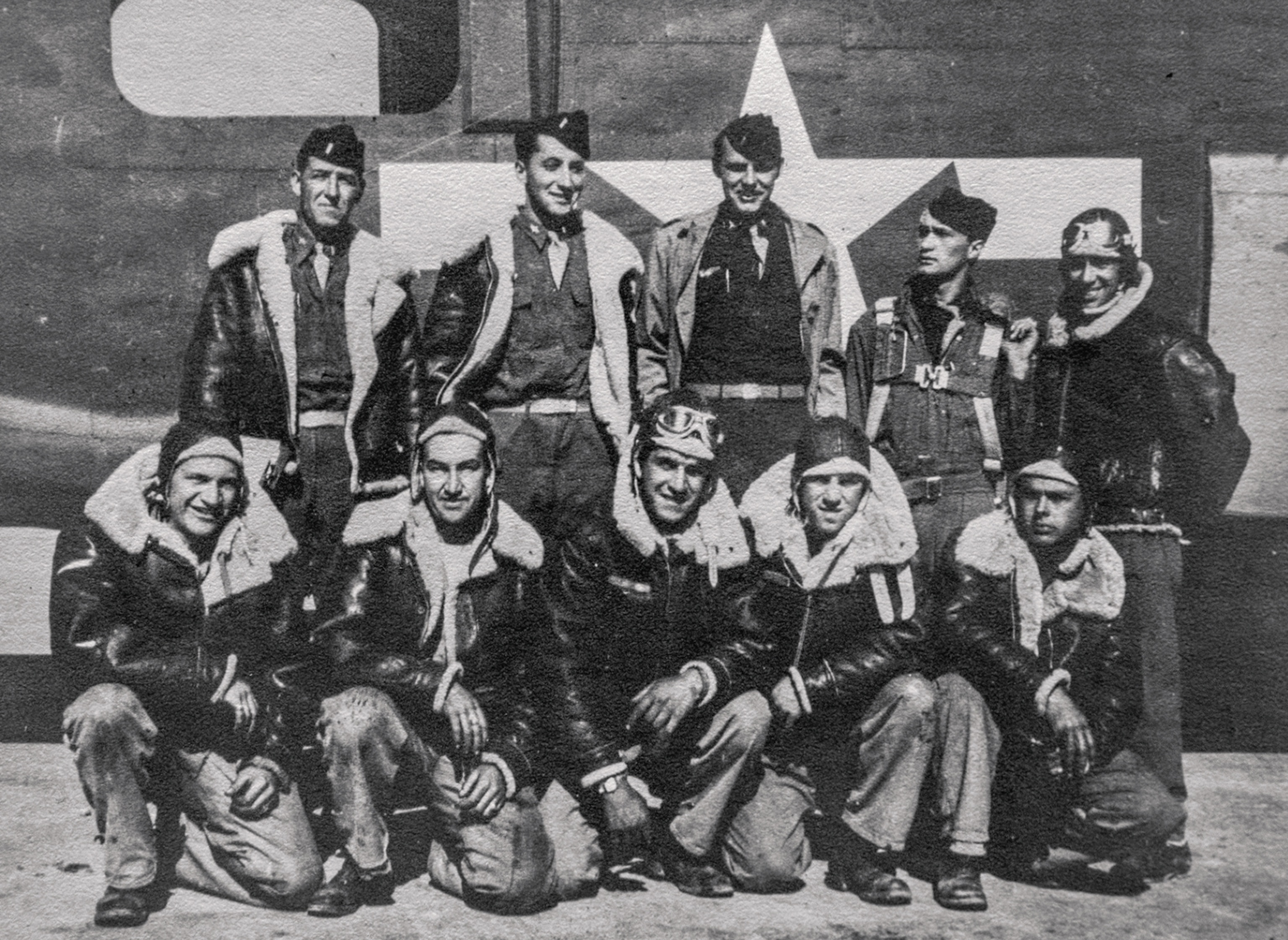‘You were an old man if you were still there at 23. If we let it bother us, it would destroy us. You just had to go on.’
Eugene Polinsky, B-24 navigator, U.S.

Grammy-winning producer, playwright, and actor Eugene Polinsky flew clandestine missions over Nazi-occupied Belgium, France, and Norway during the war. Instead of unleashing bombs, his eight-man American crew dropped Allied agents, weapons, motorbikes, cash, and other vital supplies to resistance fighters as part of a mission called Operation Carpetbagger. “I didn’t know what I was doing then,” says Polinsky, now 99. “I didn’t know what I was carrying. I would have been terrified!”
The Carpetbaggers were the air arm of the Office of Strategic Services (OSS), the U.S. intelligence agency that ran espionage and sabotage operations. Between 1944 and 1945 the Carpetbaggers dropped more than 500 agents and some 5,000 tons of supplies into hostile territory. They flew late and low, so low that the planes’ bellies snagged tree branches. “They told us, ‘If you’re shot down, if they capture you, you’ll be shot as a spy,’ ” Polinsky says. “ ‘So don’t get shot down.’ Great advice.”

Born in Manhattan on September 11, 1920, Polinsky was the son of Russian Jewish immigrants. When he arrived in England for duty with the Eighth Air Force, his crew was assigned to stripped-down B-24 Liberators, painted black to blend into the night. Hours before a mission, the ground crew loaded supply containers into the plane’s bomb bay. Just before takeoff, agents known to the airmen only as “Joes” and “Josephines” sometimes slipped aboard.
As navigator, Polinsky squatted on a gun case toward the nose of the cramped, freezing Liberator, directing the pilot to the target. When they neared the drop zone, the pilot dipped down as low as 300 feet, and upon spotting signal lights from Allies below, the dispatcher sent the night’s load parachuting out. Back in England, officers waited and hoped the number of crews that took off the previous night would match the number that landed before the sun rose. But 42 Carpetbagger planes never returned, and 21 more were mangled beyond repair. More than 200 of Polinsky’s fellow airmen ended up missing, imprisoned, or killed in combat. “You saw the 18- and 19-year-olds come in as replacements,” Polinsky recalls. “You were an old man if you were still there at 23. If we let it bother us, it would destroy us. You had to just go on.”
In August 1944, after a successful drop over Belgium, Polinsky’s crew returned from their 35th mission—the magic number for a ticket home. Their final orders were to “forget everything.” And so he did for many years.
Between 1944 and 1945 the Carpetbaggers dropped more than 500 agents and some 5,000 tons of supplies into hostile territory.
Then, in 2001, Polinsky received a mysterious invitation to a reception in Belgium celebrating a new book about an elaborate Allied operation to liberate the Port of Antwerp in 1944. Polinsky never knew he had played an important part in the mission until his host, the former head of the Belgian resistance, told him the story. “We were friends all these years,” he said. “Only you were up in the air, and I was down on the ground.”
“You want your whole life to do something,” the veteran says. “To find out that you did it when you were just a kid and you didn’t know it, well—that’s a strange feeling.”